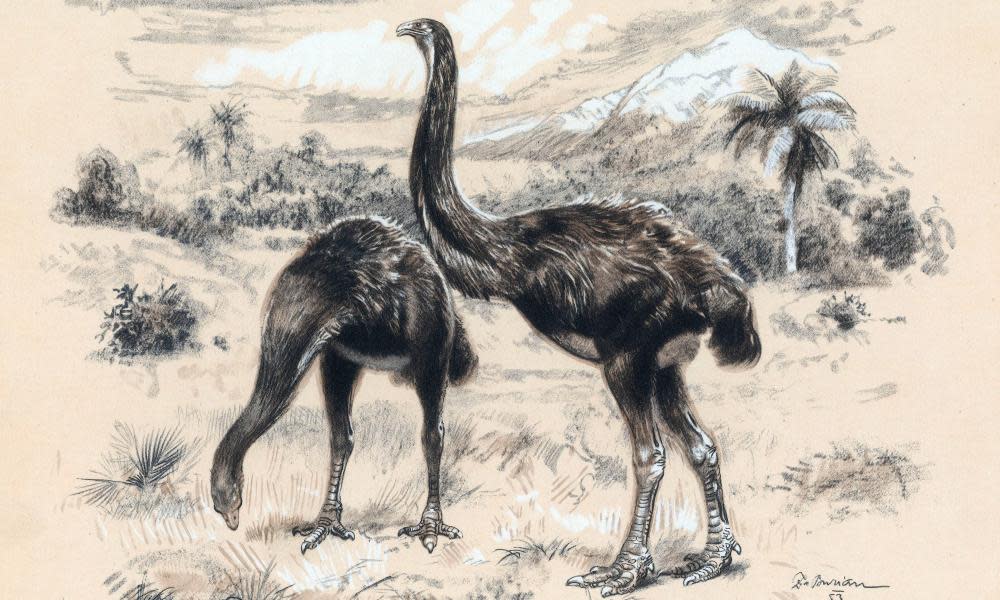New Zealand unveils plans to tackle trade in bones of extinct moa birds

New Zealand’s conservation minister has released plans to tackle the lucrative trade in the bones of the extinct giant flightless moa bird amid fears that millions of years of science is disappearing as entire skeletons are broken up and sold over the internet or smuggled overseas.
Palaeontologists have been lobbying the government for years to crack down on the trade, with fossils illegally excavated and poached from crown land.
Related: Moa for sale: trade in extinct birds' bones threatens New Zealand's history
Conservation minister, Eugenie Sage, said: “We have lost too many of our native species, but these lost species, such as moa, remain an important part of our country’s heritage, including for Māori whose traditions and whakapapa [genealogy] include moa and other extinct birds, and for science.”
Since 2010, museum scientists have documented more than 350 instances of moa bones and eggshells being offered for sale, and in many cases they have identified that these items have been recently removed from protected sites.
“Taking bones and eggshells from protected areas is against the law. It harms Aotearoa New Zealand’s cultural, scientific and historic heritage and destroys irreplaceable scientific information” said Sage.
“The proposals to use regulations under the Wildlife Act to prohibit the sale of the remains of extinct species, with some special exceptions, would remove the financial incentive that leads a few selfish people to vandalise our natural and cultural heritage.”
Moa, giant flightless birds which stood up to 3.6 metres tall, were endemic to New Zealand and became extinct about 500 to 600 years ago. When they were first discovered by Europeans they were considered a scientific marvel and kickstarted a global frenzy, as museums competed to acquire specimens.
Under New Zealand law it is legal to sell moa bones and eggshells found on private land. There is no requirements for experts to sample or study the bones, or survey the site, as is standard practice in the UK and many other countries. In November last year a private collector in Britain purchased an entire moa skeleton for $34,000.
Although it is illegal to sell or collect moa bones from public conservation land, experts and the department of conservation say looters routinely plunder caves and swamps for remains, which in their entirety can fetch between $20,000 and $50,000, or between $70 and $350 per bone.
There have been incidents of entire skeletons appearing in European auction houses with suspect or unknown origins, according to a moa expert, Trevor Worthy.
Trade Me, New Zealand’s version of eBay, has hosted hundreds of moa bone and egg sales over the past five years, and requires no evidence or documentation from sellers that their bones were collected legally.
Concerned museum curators and palaeontologists say bones sold to private collectors are essentially “garbage”, because without the correct handling and storage they will disintegrate in a matter of decades.
Richard Holdaway, a palaeontologist, said private sales should be banned. “Moa bones do not belong to individuals, they belong to the country,” he said. “There are never going to be any more Moa – every bone sold and destroyed is one less than there will ever be.”

 Yahoo News
Yahoo News 
